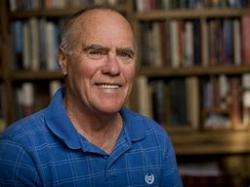Drama, grit, and courage make the sport valuable and exciting.
No matter the level, every wrestling tournament has thrilling matches, upsets, angst about seeding, and complaints about officiating. Last weekend’s D1 championships in Kansas City is a perfect example.
In the 133-pound final, two 26-year-olds wrestled for the championship, Vito Arujauk of Cornell battling Daton Fix of Oklahoma. Arujauk, a world champion in freestyle, defeated Fix, who suffered his fourth loss in the D1 Finals but showed poise and grace during his post-match interview. Arujauk graduated high school in 2017, and Fix was born in 1998.
They were not the only 26-year-olds to compete in the tournament, so perhaps the NCAA needs to re-evaluate its eligibility philosophy to give “true” first-year students a better chance to compete. I know that there are exceptions to be made for the span of eligibility, such as for Brock Hardy’s two-year LDS service in Brazil, but those should be far apart, with few granted. As one commentator said, “When I was 26, I had a job and a mortgage.”‘
There were scrambles with many exciting matches. Watching them, I was always amazed by the wrestlers’ athletic ability to turn and contort their limbs to gain control or prevent opponents from gaining points. Such skill results from hard work in practice rooms, and even the large wrestlers possess that skill.
There were surprise moves, too. The quarterfinal match between Jesse Mendez of Ohio State and Brock Hardy of Nebraska was close in the 3rd period when Hardy tried to run a cradle. Mendez then broke Hardy’s grip and, as he stood with Mendez across his back, Mendez used what is taught as a counter move to beginning wrestlers–a spladle. Brock lost and finished the match, unable to be pinned but locked tight in a rather awkward position. However, he still deserves credit for returning and placing third in his weight division.
When Mendez wrestled in the finals, Ohio State head coach Tom Ryan did not sit in the coach’s corner as is customary. He has outstanding assistants in J Jaggers, Bo Jordan, and Logan Stieber, who coached Mendez from the corner seats while he sat mat-side with the Mendez family. What a touching and truthful gesture that reveals much of the Buckeye team philosophy!
The tournament revealed many human touches. Caleb Henson, the 149 champion (4-seed) for Virginia Tech, exclaimed an f-bomb in his post-match interview when he told how much his teammates, who had swarmed him after his win, meant to him. He quickly apologized. In another post-win interview, one with Richard Figueroa, his mother is seen still tightly clutching her rosary as she had done during all of his matches. Both examples show the tight-knit nature of the wrestling community.
And there are always UPSETS! Every tournament has matches when favored wrestlers lose for a variety of reasons. Because most tournaments are double elimination, a wrestler has the chance to bounce back from a loss. But as can be imagined, that is sometimes difficult to do, especially after losing a match that should have been a win. The mental part of wrestling becomes paramount in these situations, and more than one good wrestler has lost again when he should have won.
This time, he didn’t. Thursday evening, match 71, the 7-seed at 149, Tyler Kasak of Penn State, lost to 26-seed Jaden Abas of Stanford 4-2. Kasak had a long Thursday night to ponder his loss, and in match 291, he defeated Drew Roberts of Minnesota in the wrestle backs on Friday morning. He then pinned Ethan Fernandez of Cornell in 0:37, and tech fell Graham Rooks (Indiana) before the morning was over. Friday evening saw him win over Jackson Arrington of North Carolina State and close his night with a win over Quinn Kinner of Rider. A wrestler not to be denied, Kasak began his Saturday session with a major decision over Ridge Lovett (Nebraska), the 1-seed, and a decision (3-2) over Ty Watters (WVU) to capture third place (seven wins after a disastrous loss) to become an All-American.
Kasak’s PSU team captured many more accolades during the tournament (including winning the team championship). Still, his achievement is as good of an example of mental and physical toughness as there is. What he did is outstanding, even without winning an individual championship.
All of what I have described is present, whether in a middle school event or at the NCAA DI championships. The drama, grit, and courage make the sport so valuable for participants and viewers—even for those who place third or mothers who clutch roseries.














